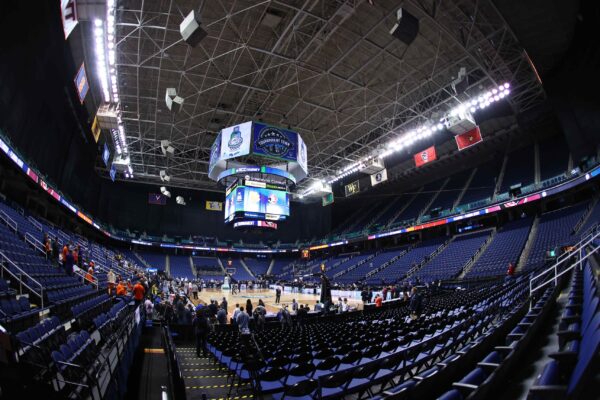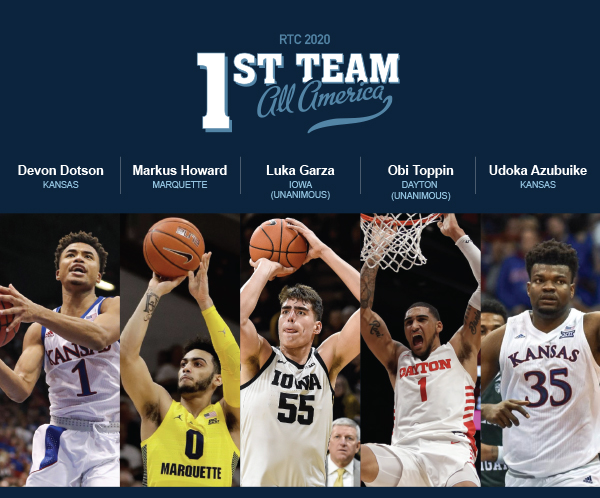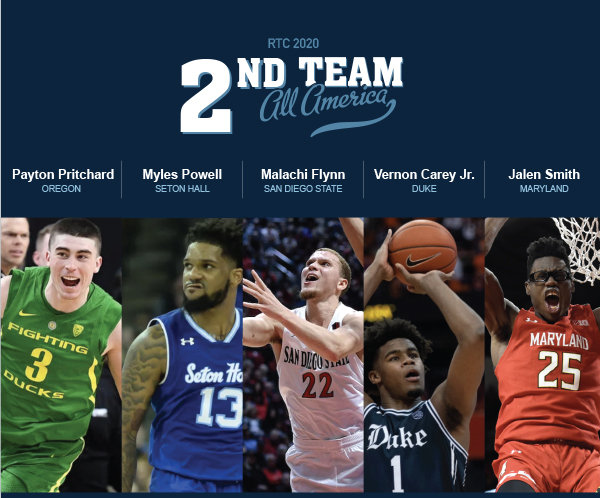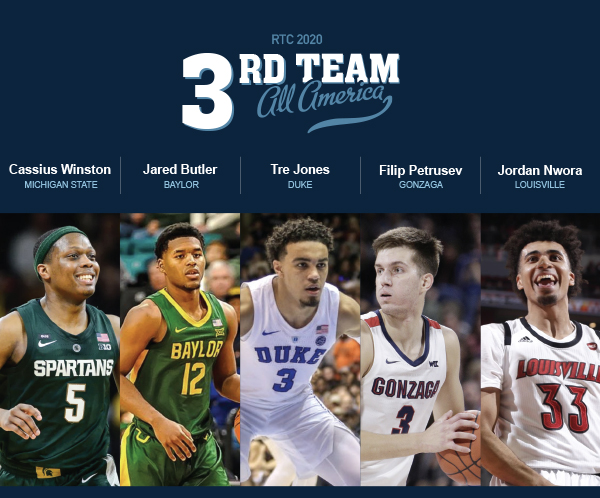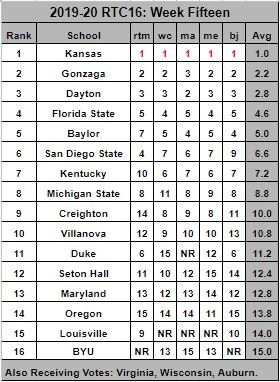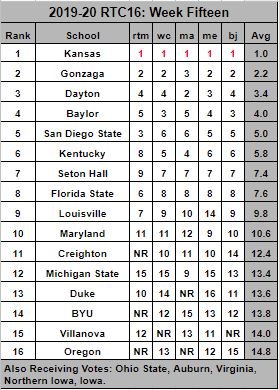Ten Questions to Consider: Action Continues and Here’s What to Watch
Posted by Matthew Eisenberg on December 11th, 2020Even as games are lost to COVID positive tests and subsequent shutdowns of programs, the college basketball slate remains full of plenty of action. While off the court the likes of Jeff Capel and Mike Krzyzewski are beginning to really question why teams are playing, on the court players are continuing to battle hard and make statements. Here are ten questions I have for ten games that I hope to see played at some point from Friday through Sunday.
- Will a pair of elite defenses steal the show in this Big 12 showdown? (Texas @ Baylor, Sunday, 3 PM EST, ESPN) Both Baylor and Texas will head into this matchup with top ten defensive efficiencies. Last season in two matchups, the teams combined to shoot 32.4% from the field on 73-of-225 shooting. A major key last season in their matchup was the free-throw line, where Baylor went 26-of-32 compared to Texas who was just 11-of-26.
- Was Jordan Bohannon’s mid-week performance a sign of more things to come? (Iowa State. @ Iowa, Friday, 9 PM EST, Big Ten Network) In Iowa’s win over North Carolina, Bohannon snapped out of the 3-of-14 three-point shooting stretch of the first three games of the season by draining 7-of-16 against the Tar Heels. For Iowa to reach its ultimate goal of playing into the Final Four both improvements on the defensive end and longterm consistency from Bohannon will be key.
- Will Florida and Florida State be able to turn one another over? (Florida @ Florida State, Saturday 11 AM EST, ESPNU) Defensively both Floria and Florida State each rank within the top 20 in turnover rate. Florida’s Tyree Appleby is a defensive pest who had four steals in just 20 minutes on Sunday against Stetson. The Gators will be challenged defensively to force turnovers at their usual high clip against a Florida State team that has been fantastic at limiting giveaways early in the season.
- After looking dominant at Duke, can Illinois avoid a letdown against an undefeated Missouri team? (Illinois @ Missouri, Saturday, 8 PM EST) Brad Underwood’s squad wasted no time turning things around after the loss against Baylor by walking into Cameron Indoor and showing what the Illii are capable of when firing on all cylinders. Illinois is a different team when they get minutes and production from Kofi Cockburn. He’ll be needed against a Missouri team that has averaged 39 points in the paint per game through its first four games.
- Can Marquette successfully attack the offensive glass against a good defensive rebounding Bruin team? (Marquette @ UCLA, Friday, 9:30 PM EST, Pac-12 Network) Marquette’s 34.3% offensive rebound rate sits in the top 50 nationally and it has also helped them post a free-throw rate of 50%, a top 20 rate in the nation. With a pair of players in Justin Lewis and Jamal Cain whom each individually post a top 100 offensive rebound rate, Marquette will challenge a UCLA team that has tremendous length and has done a good job of limiting both second-chance looks and free-throw attempts for its opponents.
- Will Stanford and USC come down to a pair of freshman or might a senior be the difference-maker? (Stanford @ USC, Sunday, 9:30 PM EST, Fox Sports 1) Stanford’s Ziaire Williams and USC’s Evan Mobley each came into the season as freshman who were among ESPN’s top 10 recruits. While Williams got off to a great start with 19 points in the opener against Alabama, he has since struggled both with his shot and staying out of foul trouble. For the Trojans, Evan Mobley’s 17.6 points, 9 rebounds, and 3 blocks per game has been a big reason USC has looked dominant at times. With the freshman stealing the spotlight, Stanford senior Oscar da Silva and his 17.3 points per game could fly under the radar and be the difference in this Pac-12 battle.
- Quite simply, will Kentucky show any signs of a pulse? (Notre Dame @ Kentucky, Saturday, Noon EST, CBS) A loss on Saturday would result in just the second four-game losing streak for Kentucky under John Calipari, the last coming in the 2017-18 season. While freshman Terrence Clarke and Isaiah Jackson showed glimmers of hope in the most recent loss, it’s been the play of fellow freshman Devin Askew as well as transfers Oliver Sarr and Davion Mintz which have left much to be desired. Any Kentucky turnaround begins with protecting the ball as the Wildcats are a -31 in turnover margin during the current three-game losing streak.
- Will Michigan’s size be too much for Penn State to handle? (Penn State @ Michigan, Sunday, 2 PM EST, Big Ten Network) Penn State has made ten or more three-pointers in three of its first four games of the season, including a 12-of-23 performance from deep against Virginia Tech in the Nittany Lions most recent game. With a lineup that primarily features four players at 6’6″ or under, Penn State will have to find ways to contain the Michigan trio of Isaiah Livers, Franz Wagner, and Hunter Dickinson who range from 6’7″ to 7’1″.
- Can Richmond’s Grant Golden stay out of foul trouble and contend with the Mountaineers dynamic duo? (Richmond @ West Virginia, Sunday, 1 PM EST, ESPN) Richmond’s Grant Golden is a skilled big who can score (14.7 PPG), rebound (5 RPG), and get others involved (3.7 APG) and can do all that while only playing 22 minutes per game. Golden will likely need to see more time on the floor against the duo of Derek Culver and Oscar Tshiebwe for Richmond to walk out of Morgantown with a victory. In just five games, the West Virginia tandem have already combined for 37 offensive rebounds.
- Will Dayton’s advantage at point guard be too much for Mississippi State to overcome? (Dayton vs. Mississippi State, Saturday, Noon EST, ESPN News) Jalen Crutcher is a senior guard who came into the season regarded as one the best lead guards in the nation. On Saturday, Mississippi State freshman Deivon Smith will be in charge of dealing with Crutcher, a player with a resume far greater than anyone Smith has faced thus far.





























